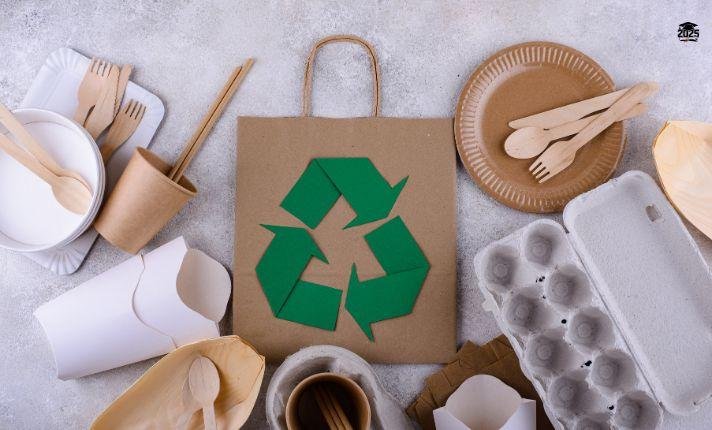As awareness of climate change and environmental damage continues to rise, more consumers are becoming mindful of the products they use in their daily lives. In 2025, one of the most promising and future-focused business ideas is launching a Sustainable Product Store, also known as an eco-commerce business. This type of store sells items that are environmentally friendly, biodegradable, reusable, or made from recycled materials. The demand for such products has grown significantly over the past few years, and with people increasingly choosing ethical consumption, the market is expected to expand even more. From reusable kitchenware and zero-waste toiletries to sustainable clothing and packaging alternatives, there are hundreds of products that fit into this green niche.
One of the best things about starting a sustainable product store is its versatile business model. You can set up a physical retail space, build an online store using platforms like Shopify or Etsy, or combine both. You may focus on a specific product category—such as eco-friendly home essentials—or create a broader store that includes personal care items, fashion accessories, children’s products, and even gift kits. Many entrepreneurs begin by selling just a few products sourced from eco-conscious suppliers or local artisans, allowing them to test the market without needing a large investment. Gradually, you can scale up, introduce your own product line, or even offer subscription boxes that deliver monthly eco-surprises to your customers.
Running an eco-commerce store goes beyond just selling products—it’s about creating a brand with a mission. Most successful sustainable stores build a strong identity based on environmental education, transparency, and community. Your branding should emphasize your commitment to the planet, how your products are sourced, and how your business reduces waste. For example, you might share Instagram posts about the dangers of plastic pollution, blog articles about composting at home, or even host recycling drives in your area. This storytelling element makes your store stand out and builds trust and loyalty among eco-conscious customers who want to support businesses that reflect their values.

Another advantage of this business is the flexibility it offers in terms of operations and audience targeting. If you are starting alone, you can begin as a dropshipping store using third-party suppliers who handle inventory and shipping. This keeps your overhead costs low while still offering you the ability to test different products. Alternatively, you can partner with local suppliers, craftspeople, or sustainable brands to stock eco-friendly items and reduce your carbon footprint. Your audience could be local households, environmentally aware millennials, schools looking for eco supplies, or companies seeking green gifts. Understanding your audience helps you refine your product offerings and improve your marketing efforts.
Marketing is a key driver of success in this field. Since many eco-commerce brands rely heavily on social proof and community engagement, platforms like Instagram, Pinterest, and TikTok are ideal for showcasing your sustainable lifestyle and educating followers. Influencer marketing, especially with micro-influencers who genuinely support eco-living, can significantly boost your brand. SEO-rich blog content, email newsletters, and video tutorials (like how to use beeswax wraps instead of plastic wrap) are great tools for increasing awareness and driving conversions. You can also participate in local eco-markets, sustainability fairs, and green business directories to build relationships and gain exposure.
Financially, a sustainable product store can be very profitable if managed well. While some eco-products may have a higher production cost due to quality and ethical sourcing, customers are often willing to pay a premium for goods that align with their values. Pricing should reflect the benefits of the products—not just their function, but their environmental impact. Offering bundles, subscriptions, and loyalty programs can help increase customer lifetime value. Additionally, many governments and local organizations provide grants or tax benefits for green businesses, making it easier to launch and grow sustainably. You can also reduce costs by using compostable packaging, partnering with carbon-neutral couriers, or managing inventory efficiently through made-to-order models.
One of the biggest strengths of this business idea is its alignment with global trends. According to market research, the global sustainable products market is expected to surpass $200 billion by 2030, with a compound annual growth rate of over 6%. Consumers—especially Gen Z and millennials—are increasingly prioritizing sustainability over convenience or even price. They are willing to switch brands for eco-friendly alternatives and often recommend them to friends. This word-of-mouth potential makes sustainable products one of the most viral and future-proof categories in e-commerce. If you position your brand well, even a small store can grow rapidly and gain national or international recognition.
However, building a successful sustainable product store also comes with challenges. Sourcing truly eco-friendly products requires diligence, as many companies practice greenwashing, claiming sustainability without proof. You’ll need to verify certifications like FSC (Forest Stewardship Council), USDA Organic, Fair Trade, or GOTS (Global Organic Textile Standard) when selecting suppliers. Logistics can also be a concern, especially if shipping from overseas negates the environmental benefit. That’s why local sourcing, bulk shipping, and carbon offset options are important strategies to consider. In addition, educating your audience on how to use the products and why they matter is vital—it’s not just about selling, but about inspiring behavior change.
If you’re wondering what types of products sell best in an eco-store, here are a few top categories:
- Home Essentials – Reusable kitchen towels, bamboo utensils, compost bins, refillable cleaning sprays.
- Personal Care – Shampoo bars, metal razors, natural deodorants, biodegradable toothbrushes.
- Kids & Baby – Cloth diapers, wooden toys, plastic-free lunchboxes, organic baby wipes.
- Fashion & Accessories – Recycled fabric bags, plant-based shoes, cork wallets.
- Gifting & Decor – Zero-waste gift wraps, soy candles, seed-paper greeting cards.
Each of these categories can be tailored to specific customer needs, and you can start small by curating a few best-selling items within one category. As you grow, adding a subscription box service can generate recurring revenue and deepen customer loyalty. For instance, you could launch a “Green Kitchen Monthly Box” or “Eco Beauty Essentials” box where customers receive curated sustainable products each month.
Another way to add value is to include educational content with your products. For example, when a customer buys a reusable food wrap, you could include a small flyer or video link showing how to use and wash it. You could even turn this content into a blog, YouTube channel, or newsletter that builds your authority in the green living space. This not only helps customers but boosts your SEO and organic reach online. Additionally, offering carbon-neutral delivery options, recyclable packaging, and eco-rewards for repeat customers will help reinforce your values.
In the long term, a sustainable product store can also become a lifestyle brand. Once your store gains traction and credibility, you can expand into designing your own branded product line. For instance, creating your own range of bamboo toothbrushes or reusable grocery bags with your logo and design can increase profit margins and brand recognition. You could also explore collaborations with other eco-brands, influencers, or community initiatives to expand your impact and visibility. Hosting tree-planting campaigns, running plastic-free challenges, or donating a portion of sales to environmental charities can further position your brand as a socially responsible business.
Sustainability is no longer just a trend—it’s a movement. Starting an eco-commerce business in 2025 not only gives you the chance to build a successful, future-proof business, but also allows you to make a positive impact on the planet. Whether you’re passionate about reducing waste, supporting ethical labor, or promoting clean living, a sustainable product store is a rewarding path that combines profit with purpose. It’s a business where every sale contributes to a better world, and where growth doesn’t come at the cost of nature. With the right mindset, clear branding, and a customer-first approach, your eco-store can stand out in a crowded market and become a trusted name in sustainability.
thank you!!
